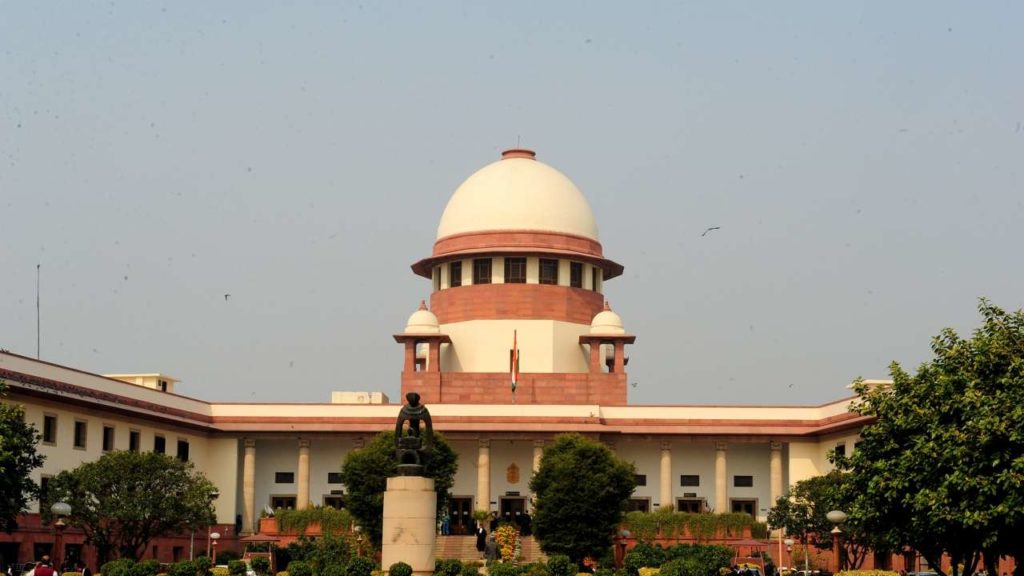![]()
CIVIL APPELLATE JURISDICTION
CIVIL APPEAL No.2530 OF 2012Birla Institute of Technology ….Appellant(s)
VERSUS
The State of Jharkhand & Ors. …Respondent(s)
Download: Judgement
The Supreme Court today held that teachers are entitled to gratuity under the Payment of Gratuity Act, 1972 (Act).
A Bench of Justices Abhay Manohar Sapre and Indu Malhotra recalled its previous judgment that had laid down that teachers do not fall within the scope of the definition of ’employees’ under the Act.
In its judgment rendered on January 7 2019, a Bench of Justices Abhay Manohar Sapre and Indu Malhotra had placed reliance on the case of Ahmadabad Pvt. Primary Teachers Association v. Administrative Officer and Others [(2004) 1 SCC 755] to hold that teachers do not fall within the scope of the definition of ‘employee’ under Section 2 (e) of the Act.
The Court had thus, allowed the appeal filed by Birla Institute of Technology and set aside the judgment of the Jharkhand High Court.
The operation of this judgment was, however, suo motu stayed by the Court just two days after the pronouncement of the judgment. The Court noted in that order that it was not apprised of the amendment brought to the Act by the Parliament in 2009. In its order, the Court said,
“Keeping in view the amendment made in the definition of Section 2(e), which as stated above was not brought to the notice of the Bench, this issue was not considered though had relevance for deciding the question involved in the appeal. It is for this reason, we prima facie find error in the judgment and, therefore, are inclined to stay the operation of our judgment dated 07.01.2019 passed in this appeal.”
The definition of the word “employee” under the Gratuity Act was amended through an amendment brought in by the Parliament in 2009. This amendment was given a retrospective effect from April of 1997. It was not brought to the Court’s notice the first time the appeal was heard.
When the matter was reheard, the Court was informed that the submissions regarding precluding teachers from the scope of the definition of ‘employee’ stemmed from the precedent in Ahmedabad Pvt Primary Teachers Association case. However, the said issue was no longer res integra after the statutory amendment.
The reason for the Parliament to amend the provisions of Gratuity Act to bring teachers under the purview of the Act was clear from the Statement of Objects and reasons of the Amendment Bill which reads,
“Keeping in view the observations of the Hon’ble Supreme Court, it is proposed to widen the definition of ‘employee’ under the said Act in order to extend the benefit of gratuity to the teachers.”
This amendment was given a retrospective effect starting from April 3, 1997. The amended definition of the word ‘employee’ is,
“(e) “employee” means any person (other than an apprentice) who is employed for wages, whether the terms of such employment are express or implied, in any kind of work, manual or otherwise, in or in connection with the work of a factory, mine, oilfield, plantation, port, railway company, shop or other establishment to which this Act applies, but does not include any such person who holds a post under the Central Government or a State Government and is governed by any other Act or by any rules providing for payment of gratuity.”
In light of this amendment, the Court noted that decision in Ahmedabad Pvt Primary Teachers Association loses its binding effect. The Court thus dismissed the appeal with costs of Rs. 25,000.
We are providing practical training (Labor Laws, Payroll, Salary Structure, PF-ESI Challan) and Labor Law, Payroll Consultant Service & more:
- HR-Generalist-Practical-Training: https://oneclik.in/hr-generalist-practical-training/ (PF, ESI, Bonus, Payroll & more)
- Labour-Law-Practical-Training: https://oneclik.in/labour-law-practical-training/ (Factory, Contact Labor, Maternity Act & more)
- PF – ESI Consultant Service: https://oneclik.in/pf-esi-consultant-service/
- Labor Law, Compliance & HR – Payroll Management
- Advance Excel Practical Training
To Get Latest HR, IR, Labor Law Updates, Case Studies & Regular Updates: (Join us on Social Media)
- Telegram Channel: “One Clik”
- Whatsapp Group: https://wa.me/919033016939
- Facebook: One Clik
- Linkedin: One Clik
- Instagram: oneclik_hr_management
- YouTube: One Clik


What about the status of teachers working in self financed colleges/private colleges affiliated with the state or central university…
Till now, we have not found any case. We will update here in future.